The views expressed in our content reflect individual perspectives and do not represent the authoritative views of the Baha'i Faith.
December 10th is United Nations Human Rights Day – and today, in a highly dignified ceremony in Oslo, Norway’s King and Queen will award the Nobel Peace Prize to this year’s Nobel Laureates.
Arguably the greatest honor the world can bestow, the Nobel Peace Prize is awarded annually “to the [living] person who shall have done the most or the best work for fraternity between nations, for the abolition or reduction of standing armies and for the holding and promotion of peace congresses.”
How Are Nobel Laureates Chosen?
A panel of five people appointed by the Storting, Norway’s Parliament, make the decision, from hundreds of nominations submitted by heads of state, previous Laureates, university professors and others who work in the field of peace and peace studies. Winners receive a gold medal, a diploma, and 10 million Swedish krona, about $1.1 million US dollars, with co-winners splitting that amount.
I have known and worked with two of the recent Nobel Peace Prize Laureates, Jody Williams – who won, along with the International Campaign to Ban Landmines, in 1997 – and Maria Ressa, the Filipina journalist who will receive her Peace Prize today, along with Russian journalist Dmitry Muratov. Since its beginning in 1901, only 18 of the 108 individual Peace Prize Laureates have been women – among them Marie Curie, Mother Teresa, Wangari Maathai, Shirin Ebadi, and Malala Yousafzai.
RELATED: Is an Inclusive World Civilization Even Possible?
These remarkable Peace Prize Laureates, and the many who preceded them, all did one crucial thing. Just as Abdu’l-Baha advised in a talk he gave in Paris in the early years of the 20th century, they selflessly and altruistically dedicated their God-given gift of understanding and intellect:
… that it might be used for the advancement of civilization, for the good of humanity, to increase love and concord and peace.
So maybe, by learning a little about the lives of these two remarkable women, we can understand how they became Nobel Laureates.

Maria Ressa: Advocating for Facts and the Truth
After the “People’s Revolution” in the Philippines in 1986, I discovered that a great need existed among the Filipino poor, who suffered severely under their nation’s previous regime – so my colleagues and I, who worked in the health care field in California, took a group of 25 volunteer doctors and nurses, along with a planeload of medicine, to their country. We called the relief effort Project HELP – for Hospital Emergency Lift, Philippines – and for weeks we went to the most afflicted places in the archipelago, treating the sick and injured as best we could. The corrupt regime that had run the country for the previous 23 years had specialized in plunder, repression, torture, and atrocities, which meant that 58 million Filipinos had few if any health care resources.
Maria Ressa, a young television journalist at the time, covered our airlift and our delegation’s formal meeting with the new Filipino president, Corazon Aquino. Outspoken, incisive, and intensely curious about what would make an American health care group from Los Angeles fly to the Philippines, when she interviewed me I learned that Maria had been educated at Princeton University in New Jersey, and had then become a Fulbright Scholar studying political theater in her home country. After the People Power Revolution in the Philippines, following her early TV reporting, Maria co-founded a hard-hitting investigative TV news organization called Probe, which ran weekly on GMA Television; and led to the creation of the online investigative network Rappler, reporting on government and institutional corruption.
Maria won her well-deserved Nobel Peace Prize for her fearless and indefatigable work “to safeguard freedom of expression, which is a precondition for democracy and lasting peace,” the Nobel committee wrote. She has said “If you don’t have facts, you can’t have truth. You can’t have trust. You don’t have a shared reality. So how do we solve these existential problems — the rise of fascism, coronavirus, climate change — if we don’t agree on the facts? This is fundamental.”
For her brave journalism, Ressa now faces six years in prison in the Philippines.
Jody Williams: Working to Stop the Wounds of War
I first met Jody Williams in my work, and hers, helping landmine victims in El Salvador. I volunteered for and she worked with an L.A.-based organization called Medical Aid for El Salvador, which provided health services to people impacted by the violence in that civil war-torn country. We traveled to El Salvador together, taking delegations from California to learn about the ongoing war and meet some of its victims. Medical Aid for El Salvador specialized in providing artificial limbs for amputees who had lost arms or legs to landmine explosions, often non-combatant children or farmers who suffered terribly from one of the millions of crude landmines placed by military or guerilla forces in that long-lasting war.
Giving amputees a new leg deeply moved us all. We learned that just seeing the expression on the face of a young boy who takes his first step on a computer-controlled prosthetic leg warms the heart. In her work, Jody faced those grievously wounded victims repeatedly, and in 1991 those experiences led her to help form – with the groups Vietnam Veterans of America, Human Rights Watch, Physicians for Human Rights and others – the International Campaign to Ban Landmines.
Subsequently, with an enormous amount of work, ICBL put together the first non-governmental international treaty, serving as the voice of civil society in the diplomatic arena. The treaty bans the use, production, stockpiling and transfer of antipersonnel landmines across the world – and so far, 164 nations have signed it. Only 32 nations remain outside the treaty – including Russia, China, and the United States – which means that the ICBL’s important work continues in every country that manufactures or deploys deadly landmines.
RELATED: The Great Heroes of Peace
How to Win the Prize
In my work with them, I’ve learned that Nobel Peace Prize Laureates have one thing in common – they have all dedicated their lives to the betterment of humanity. They each sacrificially follow their passionate convictions, even risking their own safety, to help others. This kind of dedication to the advancement of everyone is love made manifest. Whether aware of it or not, each Laureate or organization follows this spiritual counsel from Baha’u’llah: “With the utmost friendliness and in a spirit of perfect fellowship take ye counsel together, and dedicate the precious days of your lives to the betterment of the world …”The Baha’i teachings point out that the reward for following that counsel, however, is far greater and more permanent than any prize conferred by people. As Abdu’l-Baha wrote, “Urge on the steed of high endeavour over the field of sacrifice, and carry away from this wide arena the prize of divine grace.”


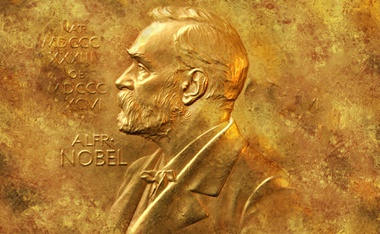


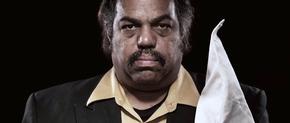
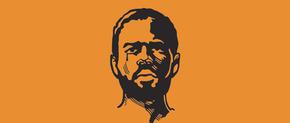





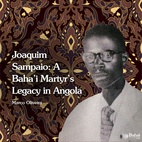
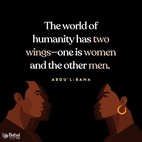
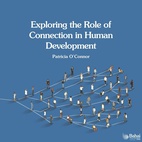


Comments
Sign in or create an account
Continue with Googleor